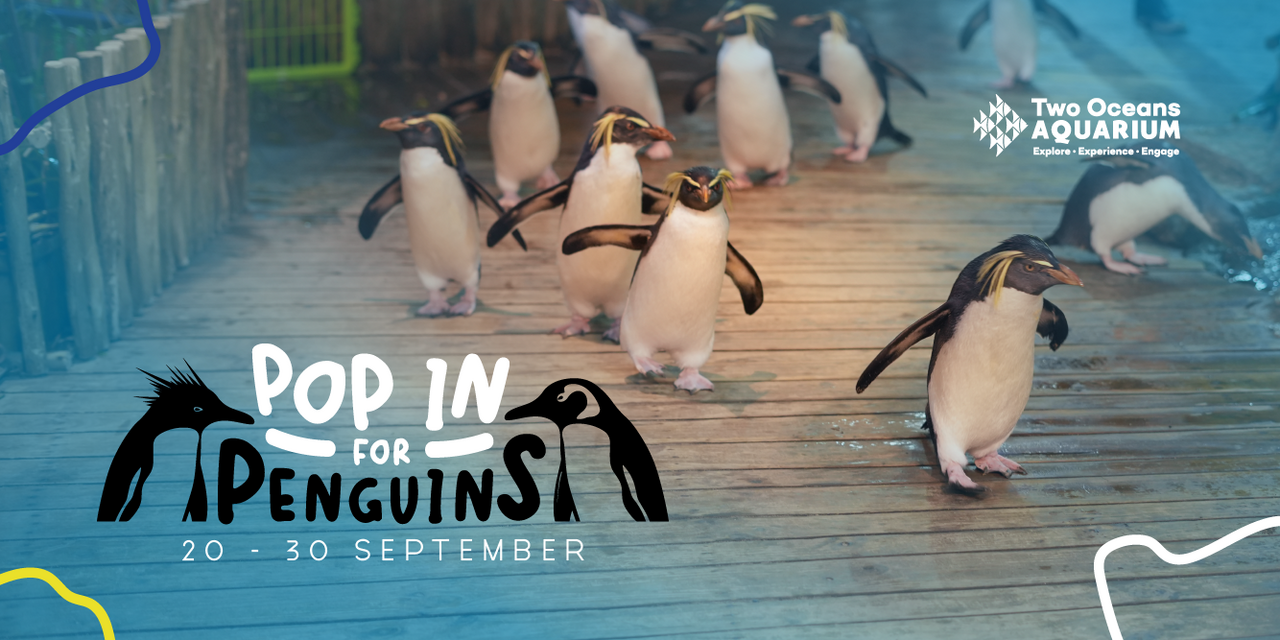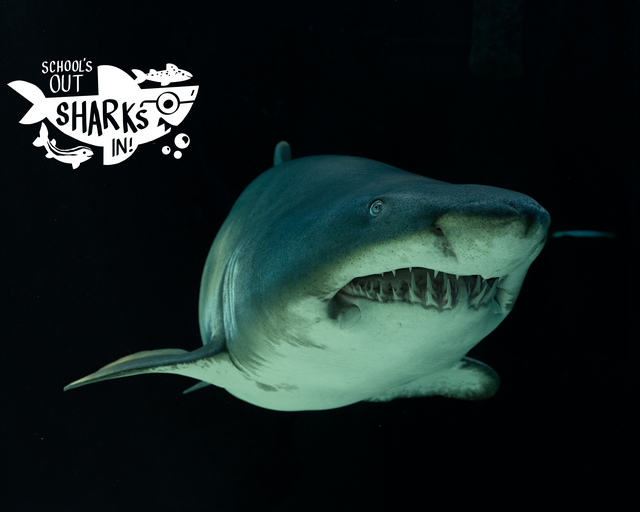How to spend a whole morning with the penguins at the Two Oceans Aquarium

At the Two Oceans Aquarium, we are proud to house two species of penguin: The iconic African penguin and the charismatic Northern rockhopper penguin. Visitors to the Aquarium may be familiar with the African penguin feeding times, but did you know that you can actually spend an entire day with our penguin colonies?
09h00
The Two Oceans Aquarium opens at 09h00 during the school holidays, so you’ll be bright and early for your penguin-full day! In our opinion, your first stop should be at the African penguin beach in our Penguin Exhibit. Typically, the African penguins spend their mornings having “bath time”. This involves much wiggling and splashing about as they preen their feathers, enjoy a chilly swim, stretch and flap their wings, and help their partners groom any hard-to-reach bits. This charming morning routine is a fascinating glimpse into the lives of African penguins – you can learn all about their personalities and partnerships just by watching!
The African penguins’ morning routine also serves a vital function. All penguins have a special gland at the base of their tails called the uropygial gland (also known as the preen gland) that secretes a sebaceous, oily liquid. This special fluid helps to maintain the waterproof nature of their feathers. The penguins use their beaks to activate the preen gland and spread the resulting oil through their feathers!
10h00
Once you’ve had your fill of wiggles, head over to the Kelp Forest Exhibit. Look carefully between the swaying fronds of kelp and the shoals of silvery fish, and you will catch a glimpse of the Northern rockhopper penguins darting through the water! Every morning until 11h00, the rockhopper penguins swim in the Kelp Forest Exhibit. Not only is this fabulous enrichment and exercise for the penguins, but it also provides our Two Oceans Aquarium family with wonderful entertainment as the penguins zoom through the kelp!
10h50
Just before 11h00, make your way back to the Penguin Exhibit. It’s time for the famous rockie waddle! Our volunteers and staff will guide you to line the pathway to the Northern rockhopper penguin beach – be sure to get your cameras out (without flash, please) because this will be one of the cutest moments of your day. Then, fresh from their swim, the rockies are ushered by our Penguin Keepers back to their beach. The sound of their feet pattering across the walkway will melt your heart. Each penguin has a unique way of waddling, and the abounding cuteness will guarantee your imminent return for waddle o’clock!
Once the rockhopper penguins are back at their beach, they spend some time preening and getting ready for the day ahead. During this time, you can watch as they show off their impressive rock-jumping skills and prove that dynamite comes in small, incredibly loud, packages.
11h30
To end off your perfect penguin day, watch the African penguins have lunch in the Penguin Exhibit. The penguins are fed nutritious meals of pilchards every day at 11h30 and 14h30. This is a fun and informative time in which one of our knowledgeable staff members tells you all about feeding time and gives you a crash course on what makes the African penguin so iconic, as well as the dangers they face in 2024.
What an amazing morning with our feathered friends!
If you’re still feeling a penguin-shaped hole in your heart (don’t worry, we get it), why not book a Penguin Experience? This is a chance for up to two people to join our Penguin Keepers for an informative, fun, and exhilarating face-to-face experience with our rockhopper penguins. You also get a behind-the-scenes peek at the rockhopper penguins’ morning swim and their waddle downstairs back to the beach!
Related News
Sign up to our Newsletter
Receive monthly news, online courses and conservation programmes.




